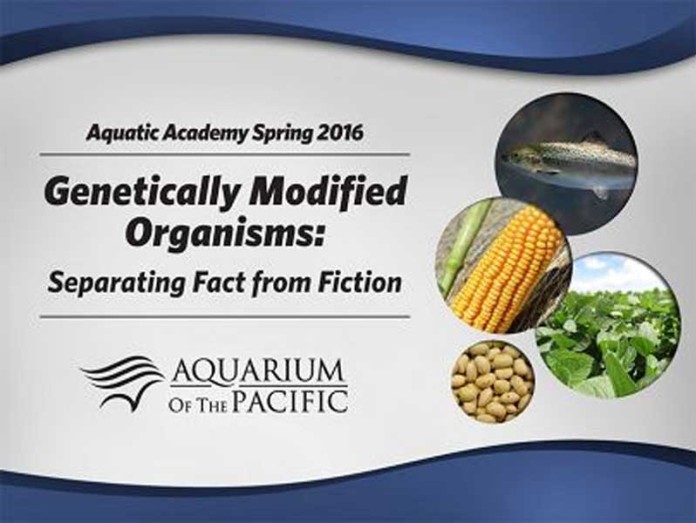According to the United Nations, we will need 70 percent more food by 2050. Currently we devote more than half of Earth’s ice-free land surface and 70 percent of Earth’s available freshwater to grow our crops, and the nutrient-rich run off produces dead zones in the ocean. Can GMOs help solve this dilemma?
Join us for a four-part adult education course on genetically modified organisms, or GMOs. Learn about what GMOs are, the advantages and disadvantages of using GMO crops and animals in our food system, the potential health implications of GMOs, and issues surrounding labeling of products that use GMOs.
Participants will have the opportunity to participate in lively discussions about the science of GMOs with experts in the fields of agriculture, biotechnology, environmental science, and sustainability.
Session 1/March 2:
Overview of Course and an Introduction to GMOs and the Issues.
Dr. Jerry R. Schubel, President and CEO, Aquarium of the Pacific
Dr. Alison Van Eenennaam, Cooperative Extension Specialist in the Department of Animal Genomics and Biotechnology Science, UC Davis
Session 2/March 9:
GMOs and What Does the Science Tell Us?
Peter Kareiva, Director, Institute of the Environment and Sustainability, UCLA
Dr. Neal Stewart, Professor of Plant Sciences, The Stewart Lab, University of Tennessee
Session 3/March 16:
GMOs and Aquaculture, The Promise and the Peril.
Dr. Yonathan Zohar, Chair of the Marine Biotechnology Department, University of Maryland
Dr. Ronald Stotish, Executive Director, President and CEO, AquaBounty Technologies
Session 4/March 23:
A Panel Discussion: Putting all the Pieces Together. The Case For and Against GMO Labeling.
Mark Lynas, British author, journalist and environmental activist
Nathanael Johnson, Food Editor, Grist and Author
Dr. Alan McHughen, CE Biotechnology Specialist and Geneticist, UC Riverside












